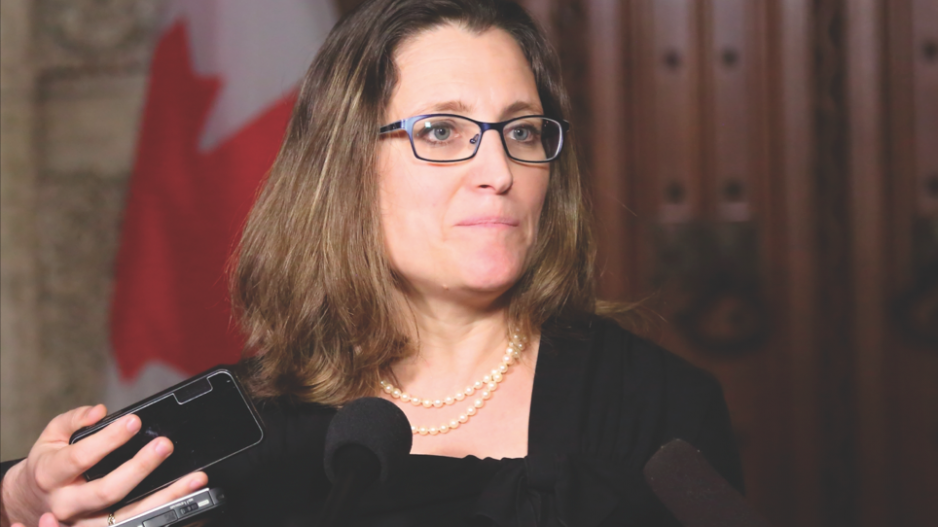With the pandemic imposing new restrictions on some businesses across Canada, the federal government is extending measures to the Canada Emergency Wage Subsidy (CEWS) by freezing the current subsidy rate until mid-December.
The CEWS program originally covered up to 75% on the first $58,700 an employee earns — or a maximum of $847 a week — before it was slated to decline at a staggered rate through to December.
Instead, Finance Minister Chrystia Freeland said during a Friday (October 9) media briefing the calculation for the subsidy would be frozen at the current rate.
The base rate for companies with 49% revenue declines or less is calculated at 0.8% multiplied by a company’s revenue drop.
If, for instance, a company experienced revenue declines of 20%, then its subsidy would come to 16% (0.8 x 20% decline).
That base rate was scheduled to decline to 0.4% in November before the CEWS program was scheduled to conclude in December.
“Our projection is that this freeing of the wage subsidy will add an additional $6 billion to the cost of the wage subsidy,” Freeland said, noting the program had cost $41 billion up until October 4.
In addition to freezing the current rate, the federal government plans to extend the CEWS program to June 2021 — an announcement alluded to during last month’s Throne Speech.
The government also aims to introduce a new rent subsidy programming for businesses in upcoming legislation.
The Canada Emergency Rent Subsidy (CERS) will provided direct rental and mortgage support to eligible businesses until June 2021.
It will cover a maximum of 65% of eligible expenses until December 19 and businesses will be able to make claims retroactively for the period between September 28 and October 24.
A top-up CERS benefit of 25% will be available to organizations that were temporarily shut down by mandatory public health orders.
Meanwhile, the federal government introduced plans to expand its Canada Emergency Business Account (CEBA) beyond the original $40,000 interest-free loans being offered.
Ottawa now wants to offer an additional $20,000 interest-free loan on top of the $40,000 for businesses that need it.
Half of the additional financing is forgivable if it’s repaid by December 31, 2022.
Freeland said she estimates the additional aid through CEBA will come in at $11 billion — the program as so far cost $30 billion in the wake of 765,000 claims — while the new rental support tallies $2.2 billion.
“It's important for people to know that there is some degree of uncertainty because we are adding an attestation where businesses will need to attest that they have suffered revenue loss because of the pandemic. And this is in keeping with our desire to really, insofar as possible, make these programs targeted to the businesses that need it,” the finance minister said.




